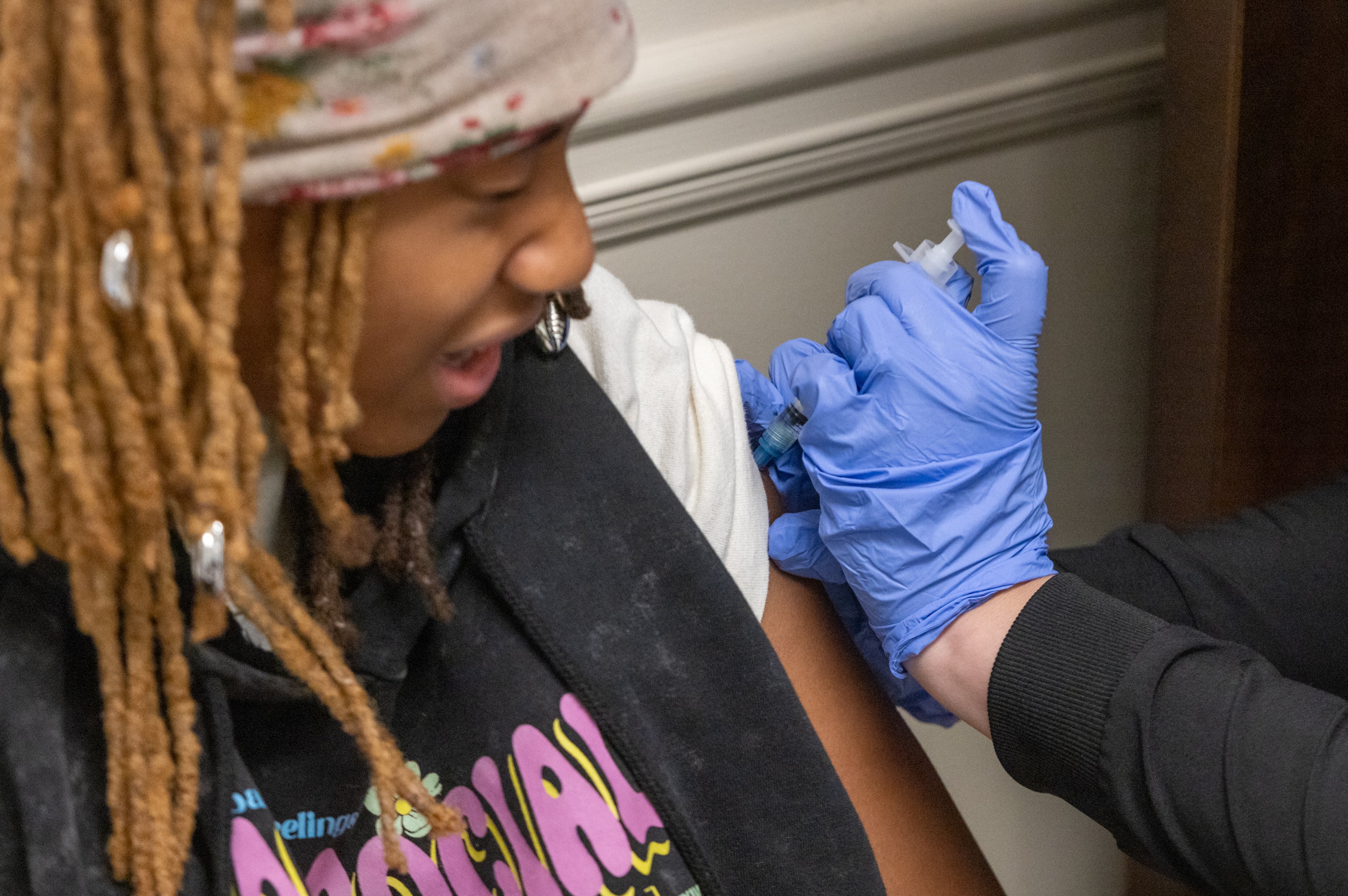Lawsuit that alleged Georgia underfunded its public HBCUs quietly dropped

A highly publicized lawsuit filed last fall made serious allegations that Georgia had chronically underfunded its historically Black universities compared to the state’s predominantly white schools.
But a little more than six months later, the plaintiffs quietly agreed to dismiss the civil case after a federal judge in Atlanta noted “that no action has taken place in this case since plaintiffs filed their complaint on October 24, 2023.”
The Georgia Board of Regents, which oversees the state’s three public HBCUs and was named as a defendant, typically doesn’t comment on litigation. But a spokeswoman said the board and University System of Georgia Chancellor Sonny Perdue were never even served the legal paperwork in the civil case.
Despite dropping the case, the lawsuit’s supporters have vowed to continue the fight.

Atlanta attorney John A. Moore represented three alumni who attended Fort Valley State, Savannah State and Albany State universities and brought the case against the state and individual officials. Moore said the plaintiffs “voluntarily dismissed the case to do additional research of similar cases and to add plaintiffs to avoid dismissal attempts.”
“We always knew this case was going to take a lot of work and a long time to reach any conclusion, so we are remaining nimble in order to represent our clients zealously and to the best of our abilities. This case is still No. 1 on our docket and we are in weekly consultations on the matter,” he said in an email to The Atlanta Journal-Constitution.
Moore also said he “should be in a position to discuss our next steps and strategy soon.”
Combined, Georgia’s three public HBCUs enrolled nearly 12,500 students in fall 2023, accounting for 3.6% of the total enrollment in the University System’s 26 schools.
The suit’s dismissal slows efforts to call attention to what some students, state lawmakers and federal officials contend has been historic inequities in how Georgia and other states fund historically Black colleges.
HBCU advocates have seen some legal success in such cases. In 2021, Maryland approved $577 million in additional money for the state’s four HBCUs and to settle a federal lawsuit filed 15 years earlier. More than two decades ago, Mississippi agreed to pay out hundreds of millions of dollars to end a long-running class-action lawsuit that alleged the state favored its predominantly white schools over its public HBCUs.
To announce the Georgia lawsuit in October, attorneys and several Black Democratic state lawmakers held a press conference in front of the federal building in downtown Atlanta. The 67-page lawsuit alleged the Board of Regents “diverted resources away” from HBCUs to strengthen academic programs at majority-white schools. It also alleged that Georgia’s historically Black colleges had “inferior” facilities that were “unattractive, inadequate, and at times unhealthy.”
Plaintiffs sought a legal remedy to correct what the lawsuit said were Civil Rights Act and constitutional violations. The lawsuit also pointed out that none of the 19 members of the Board of Regents had graduated from any of the state’s public HBCUs, though multiple board members attended the University of Georgia. The state’s original land-grant school didn’t admit Black students until 1961.
An 1890 federal law required states to either end racial discrimination at their land-grant schools, which historically focused on agriculture and other careers, or open a separate land-grant school for Black students. Fort Valley State eventually was designated as Georgia’s land-grant HBCU.
Weeks before the lawsuit was filed, U.S. Secretary of Education Miguel Cardona and Secretary of Agriculture Thomas Vilsack alleged 16 states, including Georgia, had inadequately funded their land-grant HBCUs. Their analysis found that Fort Valley State would have received an additional $603 million from the state over the last three decades if its per-student funding was equal to that of the University of Georgia.
Their letter said that Fort Valley State “has not been able to advance in ways that are on par with University of Georgia ... in large part due to unbalanced funding.”
In a December response, Perdue disagreed with the findings, saying the assertions were “disappointingly dependent on a simplified ‘one size fits all’ analysis.” Perdue, also a former secretary of agriculture, said that the University System has mitigated some cuts that Fort Valley State would have faced over the last decade because of enrollment declines: The HBCU was allocated money that would have otherwise gone to larger, growing schools such as UGA.
The goal, Perdue said, is to help Fort Valley State “resume growth and provide even greater service to students.”

State Rep. Sandra Scott, D-Rex, was among the legislators to champion the lawsuit when it was filed in Georgia last fall. In an email to the AJC, Scott said the legal team expects to refile the complaint later this year, and that the extra time will “enhance the legal strategy and better position the lawsuit to overcome attempts and motions to dismiss.”
Scott added: “As lawmakers we will continue our work within the political system to shine a light on the injustices and the inequities related to the state of Georgia’s treatment and funding of our historically Black universities. In the meantime, we will trust and rely on the legal team to do their job and zealously represent their clients for a positive outcome in this matter.”



